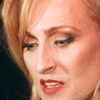"I've had four careers in the last 80 years. Starting my own company was the biggest thrill. But this is the second biggest thrill of my life. It really is." -- Harry Lonsdale in conversation with me about his Origin of Life Challenge
Philanthropist Harry Lonsdale, who died late last year at age 82, will be remembered for the $2M competition he kicked off in 2011, a race to discover the origin of life. In 2012, Lonsdale announced he was awarding a prize of $50K for the best "first life" proposal plus $300K in research funding to the top three finishing teams, choosing from among 76 papers he received. He then refunded the three teams in 2013 and 2014.
Origin of life had been a sleepy area of scientific inquiry until Lonsdale's entrance. The investigation is now serious, with "life in the lab" being projected as a reality perhaps within three years.
Harry Lonsdale was a chemist and businessman who became a millionaire when he sold his Oregon-based high tech company to Pfizer. But Lonsdale was more -- a people's champion who wanted to give back. He was too good for Washington D.C. politics, really, and it is better that he never won the U.S. Senate seat from Oregon he ran for in the 1990s.
Lonsdale embraced causes Occupy Wall Street would take up decades later -- single-payer healthcare, ending the military-industrial complex and ending poverty. Lonsdale also fought to protect the forests of the Pacific Northwest and was loved for it. He thought it was insane that these "ancient forests," as he called them, that belonged to the public were being stripped from the face of the Earth.
Said Lonsdale in his book, Running: Politics, Power, and the Press:
"I began to ask a few questions. Who owned those forests? Who controlled them? How much was left? What would happen when it was all gone . . . to the economy . . . to the environment? . . . to Oregon? I took my questions to the local headquarters of the U.S. Forest Service, only to learn that they didn't have any satisfying answers. They saw their job mainly as "getting out the timber cut.""
Ralph Nader said of Lonsdale's run for office that he "took his 'independent' candidacies for elective national office in Oregon further up the cliff of the two-party duopoly than anyone else in the country."
A couple of months before Harry Lonsdale died he sent me a copy of his book on his run for office, which he self published. I was wrapping up my own book on origin of life and assumed Lonsdale thought it relevant to our interview, the book's opening chapter. But Harry may have also sensed he was moving on.
Lonsdale ends his book, Running with the famous words of Margaret Mead: "Never doubt that a small group of thoughtful, committed citizens can change the world; indeed it's the only thing that ever has."
Harry Lonsdale was clearly one of those. His enthusiasm was boundless for pushing to make the breakthrough on origin of life, telling me this:
"I suspect we're going to know more in the next 50 years than we knew in the previous 500. So as to the urgency of discovering who we are and where we came from -- I'd say what's important to focus on is not that life has been unaware of its origin for nearly four billion years and we've gotten along just fine, but to consider the possibilities once we move beyond these hard questions and finally make the breakthrough."
Harry Lonsdale inspired and will be missed.
